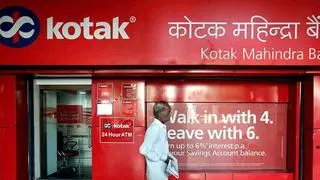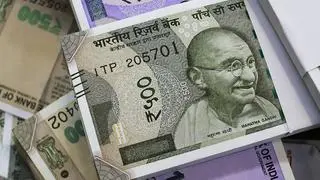7
A digital credit card for MSMEs is likely to be rolled out by Diwali this year, even as real-time disbursements to the sector without them having to visit the bank branches become a reality in the next three months.
According to Jinand Shah, MD and CEO, Online PSB Loans (OPL), the required tools to give credit cards to MSMEs are in place but there are some approvals needed to roll out the product. SIDBI (Small Industries Development Bank of India) has been spearheading a project to ensure real-time loan disbursements to MSMEs without them having to visit bank branches. The same could be replicated for real-time sanction of credit limits for a credit card.
“The MSME credit card may come as a Diwali bonanza for most MSMEs. The infrastructure is in place but for rolling out, there are a lot of approvals needed so we expect by Diwali that should be coming. It is something that is required by the MSME industry for long time, and people have been hoping that to be delivered,” Shah told businessline.
Also read: HDFC Bank, Flipkart Wholesale launch first credit card for small merchants
Trial runs for providing real-time disbursements for MSMEs are currently being conducted and it is likely to be rolled out in the next three months. For the credit card for MSMEs to grow, the industry would require certain tools and those are already in place.
“This year, we expect that the e-KYC part, the risk models something like a bureau rank and fit score along with business tool engine that should be able to give real-time decision making of credit limits with some top lenders at least. In the next three months, some large banks should have real-time disbursements to MSMEs without them having to go to a bank branch. Now, when you can do that, you can also give a credit limit like a credit card. Those products are being conceived as to how using the same infrastructure you can give a credit limit rather than disbursement so that credit card can be issued,” he said.
OPL is working closely with SIDBI, SBI Cards, and few other players for rolling out credit cards for MSMEs.
Also read: ECLGS saved about 12% of outstanding MSME credit from slipping into NPA: SBI report
Cash flow-based financing
Post-Covid, there has been an increase in cash flow-based financing to the MSME sector as compared to asset-based financing earlier. Banks have been increasingly adopting digital infrastructure to lend to the sector thereby ensuring timely disbursements and lower cost.
OPL along with SIDBI has been working on GST Sahay, which is an on-tap invoice-based financing app for MSMEs. The app, which is likely to facilitate cash flow-based lending leveraging GST data, bank account details, and bureau data, would enable MSMEs to compare loan offers from multiple lenders and choose the best one.
SIDBI has already started testing and disbursing a few cases using GST Sahay, and OPL is in the process of integration with most large banks. “Couple of banks will start testing by this month end and by next month, four or five banks should be ready to be able to disburse.”
Also read: Cancelling your credit card? Check your credit score
At present, an MSME requiring a loan may get it digitally but may still be required to visit the branch, submit the documents physically, get the loan document executed, and get disbursements physically, and the process may usually take about 7-10 days.
“Banks have understood that a lot of this can be automated, and for automating this for lending to MSMEs, which is fairly complex, you need proper risk scoring models. Today, the models that are available in the industry are credit-based models, so if you have taken a loan, the credit bureau can give you a ranking but if you are new to credit customers, then they will not have bureau history, so they have to stand in queue in bank and wait and give collateral,” he said.
OPL has been working on the best risk scoring model and has recently come up with Fit Rank, wherein MSMEs are ranked based on their income, finance, and trade. This would enable banks to disburse loans to MSMEs through a straight-through process (STP) without them having to visit a bank or providing collateral.








Comments
Comments have to be in English, and in full sentences. They cannot be abusive or personal. Please abide by our community guidelines for posting your comments.
We have migrated to a new commenting platform. If you are already a registered user of TheHindu Businessline and logged in, you may continue to engage with our articles. If you do not have an account please register and login to post comments. Users can access their older comments by logging into their accounts on Vuukle.